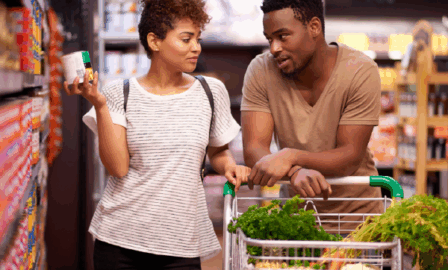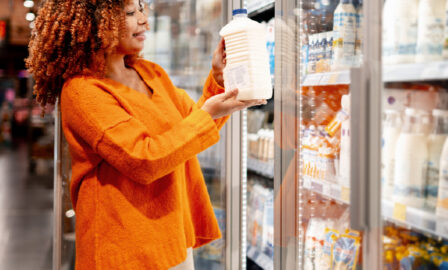Sustainability Examples in the Food & Beverage Industries
The consumer push towards sustainability has been on the rise in the past decade, and this sentiment is only seemingly growing as we look to the current sustainability examples in the food and beverage industries. A 2021 report found that over 70% of consumers are willing to pay more for eco-friendly packaging, with 67% finding sustainable packaging of their products important. Even with the disruptions caused by the pandemic, consumers have maintained their environmental concerns and sustainability desires. In turn, CPGs are faced with increasing pressure to prioritize sustainable practices.
Food and Beverage Brands Taking a Step in the Right Direction
Historically, the food and beverage industries have been criticized by some for harmful environmental practices. With more and more consumers seeking sustainability from these brands, several have committed to reducing their ecological footprint. From water conservation to reduced plastic usage, brands like Kraft Heinz strive to better their practices. Kraft Heinz, for example, aims to have 100% recyclable packaging by 2025 and continues to test sustainable packaging for its products. While the industry has a long way to go, it is apparent that brands are placing these consumer desires at the forefront of their latest goals.
The Latest Sustainability Examples from the Food and Beverage Industries
In 2019, PepsiCo announced its plans to reduce 35% of its virgin plastic usage by 2025. On September 15, PepsiCo announced their latest initiative, Pep+. This initiative focuses on positive agriculture, positive value chain, and positive choices. It was reported in 2020 that PepsiCo consumers over 2 million metric tons of plastic each year. To reduce its environmental footprint, the brand committed to producing net-zero emissions by 2040, becoming net water positive by 2030, and reducing a further 50% of its virgin plastic usage by 2030. The brand also aims to spread regenerative agricultural practices and incorporate more diverse ingredients.
Yogurt brand Chobani has made similar commitments towards sustainable packaging, focusing on shifting from plastic to paper. After years of development, the brand plans to roll out its latest paper-based containers for its Oat Blend yogurt. This new cup is 80% renewable, paperboard material with a thin plastic lining to ensure quality. Chobani has already made strides in sustainable packing, with several of its beverages already containing paper-based packaging.
Following suit, beverage giant Keurig Dr Pepper recently pledged to reduce 25% of its virgin plastic usage by 2025. The company already made several sustainable commitments in prior years, including its 2019 goal to utilize 100% recyclable packaging by 2025 as part of its Drink Well. Do Good. initiative. Through its annual Drink Well. Do Good. report, the company focuses on four key areas: environment, supply chain, health & well-being, and people & communities. In its 2020 Corporate Responsibility Report, Keurig Dr Pepper outlined several goals and accomplishments this past year. Most notably, the company announced that it had officially reached its goal of producing 100% recyclable Keurig K-Cup pods and 100% responsibly sourced coffee.
Moving Forward
These sustainability examples demonstrate that the shift towards environmentalism in the food and beverage industries is far from over. With the continued demand for ethical and environmentally friendly practices, brands also face the consumer desire for transparency. With several companies making sustainability commitments and others following closely behind, CPGs must highlight these changes honestly and transparently. In building awareness, these companies provide consumers with a sense of involvement and allow consumers to hold the brand accountable for their actions and commitments.
Subscribe to Clarkston's Insights
Contributions by Rachel Ruth



